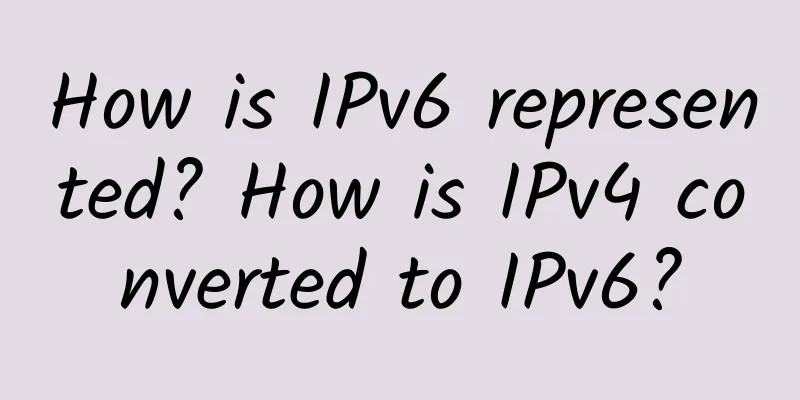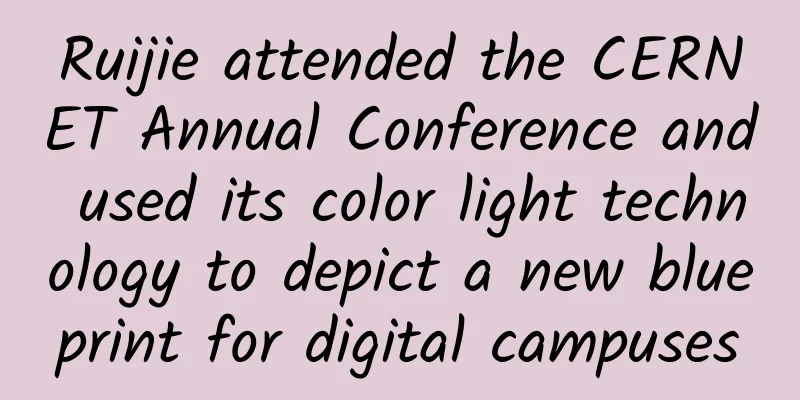You are still 11 certifications away from being an IT boss

|
There is a saying that success is not difficult, because not many people can persist. Many times, we are only one step away from success, the key lies in whether you can take that step. With the following 11 most sought-after IT certifications, your salary can be 5%-10% higher than others. Let's take a look!
1. Certified Data Professional (CDP) Certified Data Professional (CDP) is a certification launched in 2015, replacing the Certified Data Professional (CDMP) offered by the Computer Certification Professionals (ICCP) from 2004 to 2015. To obtain the CDP certificate, you need to attend a four-day data management on-site workshop and pass a written exam. Certificate holders must pass a 90-minute IS (Information System) core exam, a 90-minute business core and data management exam, and other specialized exams. More than half of CDP certificate holders have at least 10 years of industry experience, a quarter have 6 to 10 years of industry experience, and less than 22% have less than 6 years of work experience. CDP's professional certificates include: business analysis, data management, data warehouse and information system management. 2. Certified Information Systems Security Professional (CISSP) Certified Information Systems Security Professional (CISSP), this certificate represents the authoritative certification of international information system security practitioners. The CISSP certification program is aimed at professionals engaged in the construction, design, management or control of security systems in business environments, and tests the practitioners' skills and knowledge accumulation. According to Global Knowledge data, by 2020, the average salary of certified personnel will be US$141,452. The CISSP exam focuses on eight areas of computer security: security and risk management; asset security; security architecture and security model; communications and network security; identity and access management; security assessment and testing; security operations; software development security. Certificate holders need to have five years of relevant work experience in two or more CISSP areas. According to Global Knowledge statistics, the average age of CISSP certificate holders is 48.1 years old, they work as security engineers or analysts, and generally have 6.1 certificates. 3. Cisco Certified Internetwork Expert (CCIE) Cisco Certified Internet Expert (CCIE) certification is an expert-level certification exam launched by Cisco in the United States in 1993. It is recognized worldwide as the most authoritative certification in the IT industry. Certificate holders are considered to be the best proof of professional network technology knowledge and rich work experience. CCIE certification is divided into six major professional areas: routing and switching certification, service provider certification, security certification, collaboration, data center certification and wireless certification. CCIE certification includes a 120-minute CCIE qualification exam (i.e., written exam) and an 8-hour CCIE lab exam, which is used to test the user's ability to actually configure equipment and troubleshoot the network. Obtaining CCIE certification usually requires three to five years of work experience. 4. Cisco Certified Network Associate (CCNA) The Cisco Certified Network Associate (CCNA) originally focused on routing and switching, but in recent years new certifications have been added around security, cloud computing, collaboration, security operations, design, data center technology, factories, service providers and wireless. The CCNA certificate is valid for 3 years, and you need to take a recertification exam after 3 years. If you pass a higher-level Cisco certification within these 3 years, the validity period of the CCNA certification will be automatically renewed. According to Global Knowledge data, the average salary of Cisco certificate holders in North America in 2019 was $101,533. Data shows that in 2019, 16% of IT practitioners hold Cisco certifications, of which CCNA routing and switching is the most common. Among CCNA-certified employees, 71% hold CCNA routing and switching certificates, and 18% hold CCNA security certificates. 5. Cisco Certified Network Professional (CCNP) CCNP stands for Cisco Certified Network Professional. Professionals who obtain CCNP certification can install, configure and operate LAN, WAN and dial-up access services for large enterprise networks with 100 to more than 500 nodes. From January 29, 2015, the CCNP exam subject will use the new CCNP exam policy. CCNP Routing and Switching is the second most common Cisco certification, with 33% of certified employees holding it. Global Knowledge found that by 2020, CCNP Routing and Switching certificate holders will have an average salary of $119,178, and they are most likely to work as network engineers or analysts. Cisco released a new certification framework on February 23, 2020, in which CCNP Enterprise replaced CCNP Routing and Switching. All new CCNP certifications require candidates to pass two exams: a core exam and a concentration exam in a technical area. 6. Certified Information Systems Auditor (CISA) The CISA (Certified Information Systems Auditor in Chinese) certification was initiated by the Information Systems Audit and Control Association (ISACA). The certification began in 1978 and has become a globally recognized standard covering professional fields such as information system auditing, control and security. The CISA exam covers five areas: information system audit process (21%); IT governance and management (17%); information system acquisition, development and implementation (12%); information system operations and business resilience (23%) and information asset protection (27%). Global Knowledge predicts that by 2020, the average income of CISA certificate holders will reach $132,278. Global Knowledge found that the average certificate holder is 46.9 years old, works in IT auditing, and typically holds 3.3 certificates. 7. CompTIA A+ CompTIA A+ certification represents the entry-level competency of computer technicians. It is a vendor-neutral international certification that covers a variety of technologies and operating systems. The Computing Technology Industry Association (CompTIA) is the most influential, largest and leading industry association in the global ICT field. Since its establishment in 1982, it has been committed to promoting the development of the information technology (ICT) industry and related practitioners through various standards, professional capabilities, education and business solutions. Certified professionals must pass two 90-minute exams, one covering mobile devices, network technologies, hardware, virtualization and cloud computing and network troubleshooting, and the other covering installing and configuring operating systems, security, software troubleshooting and operational procedures. Data shows that the average salary of CompTIA certificate holders in North America in 2019 was $93,097, with the most popular CompTIA certifications being Security+, A+, and Network+. 8. Microsoft Certified Solutions Associate (MCSA) The Microsoft Certified System Administrator (MCSA) certification is designed for entry-level workers to demonstrate proficiency in Microsoft products, roles, and knowledge areas. The MCSA certification is the foundation for many of the Microsoft Certified Solutions Expert (MCSE) certifications, which are aimed at more experienced IT workers. Microsoft's certifications focus on a user's ability to design and build technology solutions. MCSA certifications are centered around specific roles and proprietary products, such as Microsoft Azure, SQL Server, Office 365, SharePoint Server, Skype for Business, Microsoft Dynamics 365, Exchange Server, and Windows Server. The 2019 IT Skills and Salary Survey shows that 16% of people hold Microsoft certifications, including 19% of Microsoft certificate holders who hold the MCSA: Windows Server 2008 certificate and 17% who hold the MCSA: Windows Server 2012 certificate. 9. Microsoft Technology Associate (MTA) The Microsoft Technology Associate (MTA) is an entry-level certification that validates foundational technical knowledge of Microsoft SQL Server, Visual Studio, Windows, and Windows Server 2016. The core competency scope of the exam covers 80% information expertise and 20% skills. The MTA certification covers a lot of basic technical concepts, assesses and verifies core technical knowledge. It is a good starting point for those who want to enter the technical field. The survey shows that the average salary for Microsoft certificate holders in North America was $104,127 in 2019. The MTA exam does not qualify you for Microsoft Certified Professional (MCP) status, nor is it a prerequisite for MCSA or MCSD certification. 10. Oracle Database Certification Oracle certification represents your mastery of database and Java knowledge and skills. Oracle Database Design and SQL Programming teaches IT practitioners to analyze complex business scenarios, design and create data models, and create databases using SQL. Oracle focuses on the organization, management, and use of data in database design and SQL and PL/SQL programming. Data shows that the average salary for Oracle database certification holders in North America in 2019 was $116,961. 11. Project Management Professional (PMP) The Project Management Professional (PMP) certification is a high-quality certification exam initiated by the Project Management Institute (PMI) to rigorously assess the knowledge and skills of project managers. Certification is often a key differentiator when deciding who to entrust important organizational project initiatives to. Individuals who want to obtain the certification must undergo 35 hours of PMP-related training. In addition, those without a bachelor's degree must have 7,500 hours of project management experience, and those with a bachelor's degree or higher need 4,500 hours of project management experience. Data shows that the average salary for PMP certificate holders in 2020 is $143,493. The average age of PMP certification holders is 48.7 years old, they are usually project managers, and they hold a total of 4.5 certifications. |
Recommend
VIRPUS: $35/month-E3 1230/16GB/500GB/5TB/Seattle data center
VIRPUS is a long-established foreign VPS hosting ...
Availability monitoring tool for large networks
[[184858]] No enterprise can live without network...
China Minsheng Bank and Huawei reach strategic cooperation to build a digital smart bank with technology and finance
[Beijing, China, February 8, 2018] On February 8,...
Research and application of 3D-MIMO antenna weight optimization method based on MDT
Labs Guide This paper proposes a method to optimi...
In the first interview of Byte, I was asked two classic questions! Do you know what they are?
Hello everyone, I am Xiaolin. A reader of FaceByt...
How to make 5G a reality and what are the current challenges facing 5G?
5G will significantly increase data transmission ...
Why is 5G considered the criterion for the Internet of Things era?
With the advent of the 4G era, the Internet indus...
Huawei IoT Cloud Services Accelerates Industry Innovation and Promotes Large-Scale Commercial Use
At the 2017 Huawei Connect Conference held from S...
What is Wavelength Division Multiplexing (WDM)? A Beginner's Guide to WDM
Wavelength Division Multiplexing (WDM) has gained...
Ten basic skills for Linux operation and maintenance engineers
I am a Linux operation and maintenance engineer a...
Implementing Http service to receive POST request in Qt
Hello, everyone! I will make a simple record of t...
my country's optical chip technology upgrades accelerate the proportion of optical devices to rise year by year
Optical chips and optical components are the basi...
Data center opening, electrical testers answer all your questions
Data center operators are committed to bringing t...
Simplifying enterprise operations and maintenance: the right network automation strategy is key
[51CTO.com original article] From the development...
600,000 new 5G base stations will be built in 2021
2020 is a critical year for the large-scale comme...









